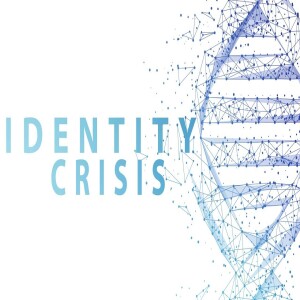
Monday Aug 21, 2017
Identity Crisis - 4K HD
Identity Crisis - 4K HD
Identity Crisis - 4K HD

This teaching from Founded In Truth Fellowship addresses the critical question of identity in the context of faith, particularly as it relates to the upcoming season of repentance and reflection known as Elul. The speaker, Matthew Vander Els, emphasizes the importance of understanding who we are in God's eyes rather than being defined by our weaknesses, imperfections, or societal labels.
The Season of Repentance (Teshuvah)
- The month of Elul is a period of Teshuvah, or repentance, leading up to the Fall Feasts, including Rosh Hashanah (Yom Teruah), Yom Kippur, and Sukkot.
- This is a time for intentional prayer and reflection, seeking to purge our lives of anything that hinders our relationship with God.
- Sukkot, in particular, is highlighted as a commandment to be joyful, emphasizing that joy is not optional but a commitment.
The Problem of Identity
- The world often labels people with simplistic adjectives, defining them by a single trait rather than their full potential.
- We often define ourselves based on our weaknesses and imperfections, allowing these flaws to become our identity.
- This distorted self-image can create a desert-like relationship with God, making it difficult to approach Him with confidence.
Understanding Our True Identity
- God invites us to come before Him, regardless of how we feel or what we're going through.
- We are more complicated than single adjectives can define, possessing many layers.
- Like Shrek, we have layers, but unlike the donkey’s view of onions, our layers represent the complexity and beauty of God's creation.
- God knows our hearts better than we do, including our struggles, anxieties, and imperfections.
- Even our imperfections can be meant for a reason, as seen in the example of Moses' speech impediment.
- We are fearfully and wonderfully made. God knit us together in our mother's womb, and we are not mistakes.
- God's thoughts about us are precious and outnumber the grains of sand.
Practical Application for Daily Life
- Reject perfectionism: Recognize that flaws are a part of life, and trying to be perfect in one area to compensate for another is unhealthy.
- Be honest with God: Engage with Him in prayer, expressing your true feelings, frustrations, and struggles.
- Embrace your complexities: Acknowledge that you are more than a single adjective and that God created you with many layers.
- Focus on God's love: Understand that God's love is not something we earn but the foundation upon which we build our relationship with Him.
- Remember you are in Christ: Recognize that your identity is rooted in Christ, and you are a child of the Living God, forgiven and redeemed.
- Pursue God, not perfection: Instead of striving for an unrealistic image, seek to grow in the areas God has gifted you.
- Acknowledge God's Ownership: Understand you have been purchased and sealed by God. Your identity is not yours to define.
Redemption and the Seal of the Holy Spirit
- Redemption is reframed in its first-century context as a slave term, signifying purchase rather than merely freedom.
- In Ephesus, slaves were often branded with a seal to indicate ownership.
- Believers are sealed with the Holy Spirit, signifying God's ownership and their new identity in Him.
- Paul urges believers to walk worthy of their calling, putting aside old habits and embracing their new identity as children of God.
- Entering into Elul, believers should approach God as His redeemed children, confident in His love and ready to be molded into who He wants them to be.
God's Love as the Foundation
- God loved us first, before we ever cared about Him or were reconciled to Him.
- God's love is not the goal of our change but the tool that produces change in our lives.
- We pursue holiness and righteousness because He first loved us.
Ephesus: A City of Contrasts
- Ephesus was a major city in the Roman Empire, a hub for trade and various cultural influences.
- It was also a city filled with immorality, including scam artists, thieves, gamblers, and prostitutes.
- Paul established his ministry in Ephesus, preaching the grace and love of God in this challenging environment.
- The book of Ephesians serves as a refresher course for believers in Ephesus, reminding them of their identity in Christ and urging them to live accordingly.
For more Bible Teachings, click the link.
References
- Galatians 2:20
- Romans 5:8
- Ephesians 3:17-19
- Ephesians 1:7
- Ephesians 4
- Mark 6
- Psalm 139
- Psalm 103
- Jeremiah 17:9
- Matthew
Resources
Note: This article contains affiliate links.
No comments yet. Be the first to say something!